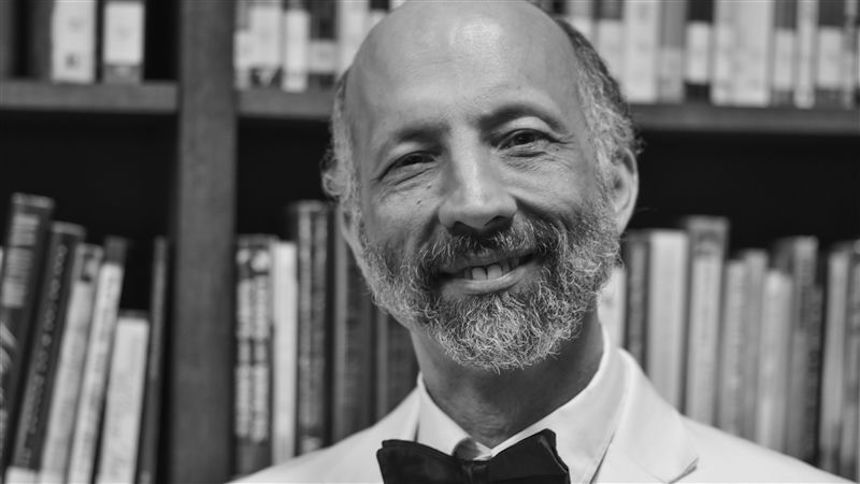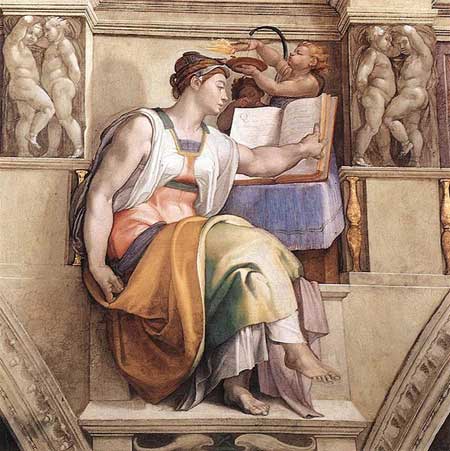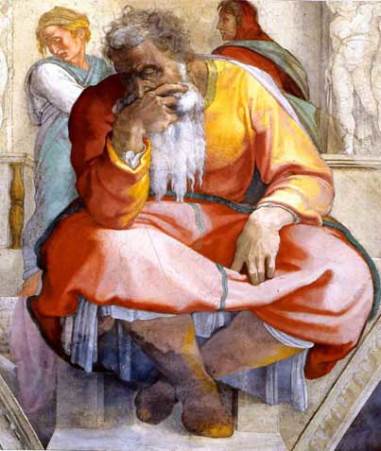
Today I speak to Dr. Louis Markos, Professor in English at Houston Baptist University and author of the book Heaven and Hell: Visions of the Afterlife in the Western Poetic Tradition. In this work, Professor Markos devotes a chapter to The Great Divorce, as well as the book to which Lewis was responding, Blake’s The Marriage of Heaven and Hell.
Dr. Markos is a fount of knowledge and I learned so much in this interview. In the episode, Dr. Markos explains to us why the Pagan classics are important, how the Romantics reinterpreted earlier works to re-imagine good, evil, Heaven and Hell…
S2E22: “After Hours” with Louis Markos (Download)
If you enjoy this episode, you can subscribe manually, or any place where good podcasts can be found (iTunes, Google Play, Podbean, Stitcher, TuneIn and Overcast).
Time Stamps
In case your podcast application has the ability to jump to certain time codes, here are the timestamps for the different parts of the episode.
00:01:40 – The Quote-of-the-week
00:02:15 – Dr. Markos introduces himself
00:08:59 – Why did you write your book and why should we study the Pagan classics?
00:22:00 – What happened with the Romantics and what was Blake doing?
00:28:00 – Lewis’ response to Blake in The Great Divorce
00:44:00 – Will we have scars in Heaven?
00:48:21 – Why is the ghost with the lizard the only one who chooses Heaven?
01:00:10 – The correct order for reading The Chronicles of Narnia
Show Notes
• I fist discovered Professor Markos in a lecture on The Four Loves he gave on YouTube. On the strength of this, I bought a copy of his Great Courses series on C.S. Lewis.
• The quote-of-the-week was from The Last Battle:
“I have come home at last! This is my real country! I belong here. This is the land I have been looking for all my life, though I never knew it till now…Come further up, come further in!”
C.S. Lewis, The Last Battle
• I was drinking Lagavulin 16.
• His book which we discuss is Heaven and Hell: Visions of the Afterlife in the Western Poetic Tradition.
• In his book, Dr. Markos spends a lot of time discussing Pagan writing. In the words of the Early Ecclesiastical Writer, Tertullian, I asked why he did this:
“What has Athens to do with Jerusalem?”
Tertullian, Prescription Against Heretics (Chapter 7)
Dr. Markos has written an entire book about the importance of Pagan literature called From Achilles to Christ: Why Christians Should Read the Pagan Classics. His Biblical basis for this is Acts of the Apostles, where St. Paul speaks on Mars Hill:
So Paul, standing in the middle of the Areopagus, said: “Men of Athens, I perceive that in every way you are very religious. For as I passed along, and observed the objects of your worship, I found also an altar with this inscription, ‘To an unknown god.’ What therefore you worship as unknown, this I proclaim to you. The God who made the world and everything in it, being Lord of heaven and earth, does not live in shrines made by man, nor is he served by human hands, as though he needed anything, since he himself gives to all men life and breath and everything. And he made from one every nation of men to live on all the face of the earth, having determined allotted periods and the boundaries of their habitation, that they should seek God, in the hope that they might feel after him and find him. Yet he is not far from each one of us, for ‘In him we live and move and have our being’; as even some of your poets have said, ‘For we are indeed his offspring.’ Being then God’s offspring, we ought not to think that the Deity is like gold, or silver, or stone, a representation by the art and imagination of man. The times of ignorance God overlooked, but now he commands all men everywhere to repent, because he has fixed a day on which he will judge the world in righteousness by a man whom he has appointed, and of this he has given assurance to all men by raising him from the dead.”
Acts 17:22-31
This idea is also found in Lewis:
And what did God do? First of all He left us conscience, the sense of right and wrong: and all through history there have been people trying (some of them very hard) to obey it. None of them ever quite succeeded. Secondly, He sent the human race what I call good dreams: I mean those queer stories scattered all through the heathen religions about a god who dies and comes to life again and, by his death, has somehow given new life to men. Thirdly, He selected one particular people and spent several centuries hammering into their heads the sort of God He was -that there was only one of Him and that He cared about right conduct. Those people were the Jews, and the Old Testament gives an account of the hammering process.
C.S. Lewis, Mere Christianity (Book II, Chapter 3)
Dr. Markos referred to the Sibyls in the Sistine Chapel which can be found among the Prophets:


• Dr. Markos tells us about Dante’s Divine Comedy, Milton’s Paradise Lost and Blake’s The Marriage of Heaven and Hell.
• Like all right-thinking people, The Great Divorce is Dr. Markos’ favourite of Lewis’ books.
• In speaking about sin, Dr. Markos quoted The Screwtape Letters:
“You will say that these are very small sins; and doubtless, like all young tempters, you are anxious to be able to report spectacular wickedness. But do remember, the only thing that matters is the extent to which you separate the man from the Enemy. It does not matter how small the sins are provided that their cumulative effect is to edge the man away from the Light and out into the Nothing. Murder is no better than cards if cards can do the trick. Indeed the safest road to Hell is the gradual one — the gentle slope, soft underfoot, without sudden turnings, without milestones, without signpost…”
C.S. Lewis, The Screwtape Letters (Letter 7)
• I pushed back on Professor Markos’ suggestion that in Heaven, Christ will be the only one with scars. I had previously mentioned on the podcast a post I wrote about this in response to listening to a Casting Crowns song and reading a bit of St. Augustine:
We are…afflicted with such love for the blessed martyrs, that we would wish in that kingdom to see on their bodies the marks of those wounds which they have borne for Christ’s sake. And perhaps we shall see them; for they will not have deformity, but dignity, and, though on the body, shine forth not with bodily, but with spiritual beauty… For though all the blemishes of the body shall then be no more, yet the evidences of virtue are not to be called blemishes.
St. Augustine, City of God, Book XXII, Chapter 19
I pointed to the radical participation described by St. Paul in the life of Christ:
Now I rejoice in my sufferings for your sake, and in my flesh I complete what is lacking in Christ’s afflictions for the sake of his body, that is, the church, of which I became a minister according to the divine office which was given to me for you, to make the word of God fully known, the mystery hidden for ages and generations but now made manifest to his saints.
Colossians 1:24-26
Dr. Markos commented on this by quoting Screwtape again:
Pains he may still have to encounter, but they embrace those pains. They would not barter them for any earthly pleasure. All the delights of sense, or heart, or intellect, with which you could once have tempted him, even the delights of virtue itself, now seem to him in comparison but as the half nauseous attractions of a raddled harlot would seem to a man who hears that his true beloved whom he has loved all his life and whom he had believed to be dead is alive and even now at his door. Pains he may still have to encounter, but they embrace those pains.
C.S. Lewis, The Screwtape Letters (Letter 31)
He also cited St. Paul:
We were buried therefore with him by baptism into death, so that as Christ was raised from the dead by the glory of the Father, we too might walk in newness of life.
Romans 6:4
I then followed up with a quotation from one of Lewis’ last books:
I assume that the process of purification will normally involve suffering. Partly from tradition; partly because most real good that has been done me in this life has involved it. But I don’t think suffering is the purpose of the purgation. I can well believe that people neither much worse nor much better than I will suffer less than I or more. “No nonsense about merit.” The treatment given will be the one required, whether it hurts little or much. My favourite image on this matter comes from the dentist’s chair. I hope that when the tooth of life is drawn and I am “coming round”, a voice will say, “Rinse your mouth out with this.” This will be Purgatory. The rinsing may take longer than I can now imagine. The taste of this may be more fiery and astringent than my present sensibility could endure. But More and Fisher shall not persuade me that it will be disgusting and unhallowed.
C.S. Lewis, Letters to Malcolm (Letter 20)
• When speaking about the ghost with the Lizard, Dr. Markos opined that the sin of lust the ghost is dealing with is probably pornography or masturbation. Quoting Screwtape, he pointed out that the devil loves to tempt us with things which promise everything and give us nothing:
“To get the man’s soul and give him nothing in return — that is what really gladdens our Father’s heart”
C.S. Lewis, The Screwtape Letters (Letter 9)
He also recounts this story from the first chapter:
I once had a patient, a sound atheist, who used to read in the British Museum. One day, as he sat reading, I saw a train of thought in his mind beginning to go the wrong way. The Enemy, of course, was at his elbow in a moment. Before I knew where I was I saw my twenty years’ work beginning to totter. If I had lost my head and begun to attempt a defence by argument I should have been undone. But I was not such a fool. I struck instantly at the part of the man which I had best under my control and suggested that it was just about time he had some lunch. The Enemy presumably made the counter-suggestion (you know how one can never quite overhear what He says to them?) that this was more important than lunch. At least I think that must have been His line for when I said “Quite. In fact much too important to tackle at the end of a morning”, the patient brightened up considerably; and by the time I had added “Much better come back after lunch and go into it with a fresh mind”, he was already half way to the door. Once he was in the street the battle was won.
C.S. Lewis, The Screwtape Letters (Letter 1)
I responded by saying we are too easily pleased:
We are half-hearted creatures, fooling about with drink and sex and ambition when infinite joy is offered us, like an ignorant child who wants to go on making mud pies in a slum because he cannot imagine what is meant by the offer of a holiday at the sea. We are far too easily pleased.
C.S. Lewis, The Weight of Glory
Dr. Markos commented that he saw Joss Ackland and Max McLean perform this sermon.
• All of Dr. Markos’ books are available on Amazon.com and, for first-time readers, he particularly recommends his book On The Shoulders of Hobbits.
• My reference at the end to “despoiling the Egyptians” is a phrase found in the Early Church Fathers to describe the process of raiding Pagan culture and putting what we find there to the service of Christianity:
Moreover, if those who are called philosophers, and especially the Platonists, have said aught that is true and in harmony with our faith, we are not only not to shrink from it, but to claim it for our own use from those who have unlawful possession of it. For, as the Egyptians had not only the idols and heavy burdens which the people of Israel hated and fled from, but also vessels and ornaments of gold and silver, and garments, which the same people when going out of Egypt appropriated to themselves, designing them for a better use, not doing this on their own authority, but by the command of God, the Egyptians themselves, in their ignorance, providing them with things which they themselves were not making a good use of; (1) in the same way all branches of heathen learning have not only false and superstitious fancies and heavy burdens of unnecessary toil, which every one of us, when going out under the leadership of Christ from the fellowship of the heathen, ought to abhor and avoid; but they contain also liberal instruction which is better adapted to the use of the truth, and some most excellent precepts of morality; and some truths in regard even to the worship of the One God are found among them. Now these are, so to speak, their gold and silver, which they did not create themselves, but dug out of the mines of God’s providence which are everywhere scattered abroad, and are perversely and unlawfully prostituting to the worship of devils. These, therefore, the Christian, when he separates himself in spirit from the miserable fellowship of these men, ought to take away from them, and to devote to their proper use in preaching the gospel. Their garments, also,–that is, human institutions such as are adapted to that intercourse with men which is indispensable in this life,–we must take and turn to a Christian use.
St. Augustine, On Christian Doctrine (Book II, Chapter 40, Paragraph 60)

Pingback: PWJ: S4E69 – AH – “After Hours” with Dr. Louis Markos – Restless Pilgrim